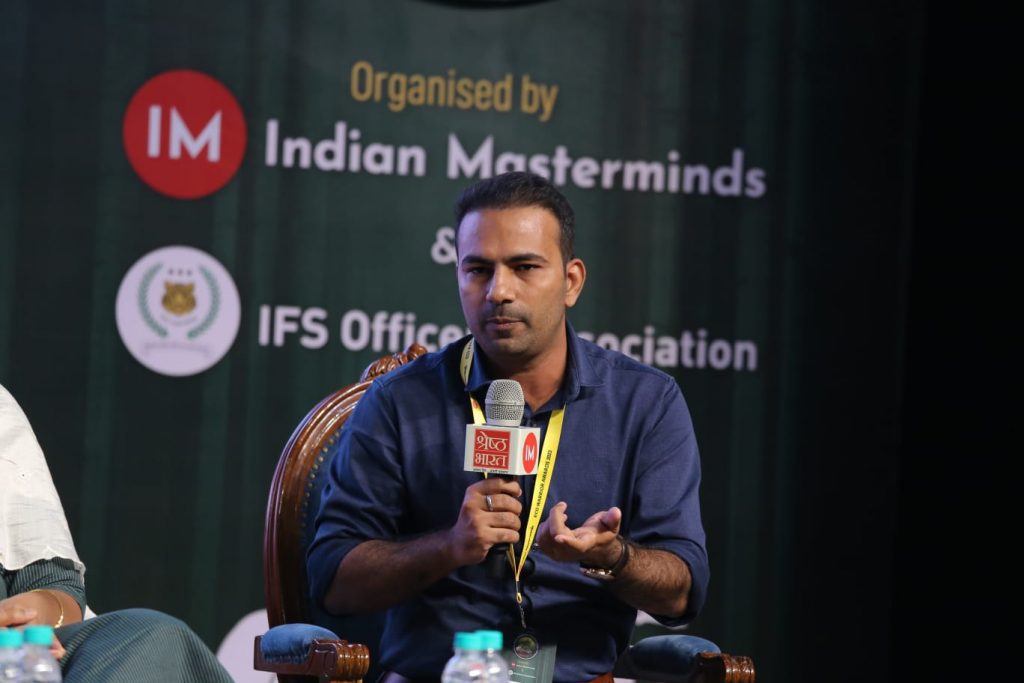In a groundbreaking achievement, the Jaldapara Wildlife Division in West Bengal has set a national record by securing convictions for 17 notorious smugglers over the past year. Of these, 13 were involved in wildlife crimes, and the remaining four in trafficking high-value Burmese timber. Spearheaded by Divisional Forest Officer (DFO) Parveen Kaswan, the team’s of Jaldpara which includes Rameez Rozer (Range officer, JDP North range), Biswajit Bisoi (Range officer, JDP East range efforts have sent a powerful message: wildlife crime will not go unpunished.
A Landmark Achievement in Wildlife Law Enforcement
India’s conviction rate in wildlife crimes has historically been abysmally low, with less than 5% of cases resulting in convictions. This dismal statistic makes Jaldapara’s success extraordinary. Smugglers involved in trafficking endangered species and wildlife products, including rhino horns, leopard skins, and pangolins, received sentences ranging from 3 to 5 years. These penalties stand as a testament to the dedication of the forest department, which has pushed for justice against formidable odds.
“Convictions rather than arrests are the game-changer,” said DFO Parveen Kaswan to Indian Masterminds. “They send a strong deterrent message and remove dangerous individuals from wildlife trafficking networks. Our focus on ensuring that smugglers face the full weight of the law is a significant leap forward in wildlife conservation.” He highlighted the crucial role of the enforcement and legal teams, describing them as the pillars of strength that provide vital support in court.
Unraveling Smuggling Networks
The arrests and convictions expose a vast transboundary smuggling network stretching across Myanmar, Bhutan, Nepal, China, Bangladesh, and India. These operations often target endangered species and valuable resources like Burmese teak.
In one significant case, James Borogaon, a public representative from Alipurduar, was convicted of smuggling a live pangolin. He received a five-year sentence and a ₹10,000 fine. Similarly, another notorious poacher, Rabindra Roy, was sentenced to three years in prison and fined ₹25,000 for smuggling a rhino horn and a sambar antler.
The arrest of Rikoch Narjari, a kingpin in rhino poaching, marked a significant victory for the team. Captured in Assam’s Kamrup district, Narjari was linked to multiple rhino killings in Jaldapara National Park. “Narjari’s arrest was a breakthrough,” said Kaswan. “He revealed crucial information about the smuggling pipeline connecting local poachers to handlers in Manipur and buyers in Myanmar.”
Besides these convictions Fourteen wildlife smugglers were arrested in a major crackdown involving the seizure of various illegal wildlife items. These arrests were made possible through careful intelligence gathering, quick operations, and teamwork between multiple agencies. Among them was Rikoch Narjari, who had been involved in several rhino poaching cases in Jaldapara National Park. After significant efforts, he was finally arrested in Kamrup district, Assam.
The Fight Against Wildlife Crime
The team’s achievements are particularly significant given the challenges in prosecuting wildlife crimes. Unlike other criminal cases, wildlife crimes are harder to prove due to the nature of the evidence. Fingerprints and DNA traces, often critical in other cases, are rarely available in wildlife crime scenes.

“Low resources and lack of forensic evidence hamper investigations,” explained Kaswan. “The journey from crime to conviction is fraught with challenges. Convictions in wildlife crimes require exceptional effort, inter-agency coordination, and airtight cases.”
These systemic gaps have long allowed wildlife crimes to thrive in India, where poaching and trafficking of protected species persist for traditional medicine, religious practices, and high-stakes black markets.
A Team of Trailblazers
Behind the record-breaking convictions is an unwavering team of officers. Led by Kaswan, the Jaldapara team includes Assistant Wildlife Warden Novojit De, Assistant Divisional Forest Officer Rhea Ganguly, and a dedicated cadre of range officers like Rameez Rozer, Sudipto Ghosh, and others. Their meticulous intelligence gathering, swift operations, and collaboration with police forces have made these victories possible.
Their successes extend beyond arrests to legal triumphs. By prioritizing prosecution and ensuring airtight cases, the team has set a new standard for tackling wildlife crimes in India.
Impact on Conservation
The ripple effects of these convictions are already visible. Not only have they reduced the immediate threats to endangered species like the one-horned rhinoceros, but they have also created a robust deterrent for future offenders.
“These convictions are a message to poachers and smugglers everywhere,” said Kaswan. “We will not tolerate wildlife crime. This is a fight for our biodiversity, our ecosystems, and future generations.”
The Jaldapara team’s relentless efforts have not only safeguarded the region’s wildlife but have also set a national example of how wildlife law enforcement can evolve from mere seizures to securing justice.
A Legacy of Determination
In a country where wildlife crime often goes unpunished, Jaldapara’s success story is a beacon of hope. It demonstrates that with vision, dedication, and the right strategy, even the most entrenched smuggling networks can be dismantled.
Kaswan and his team have shown that protecting India’s wildlife is not just about preserving animals but also about upholding the rule of law. Their triumphs serve as a reminder that every conviction brings us closer to a safer world for both humans and wildlife.
In the words of Kaswan, “Such breakthroughs are vital for the future of conservation. Each case, each conviction, is a step towards a better tomorrow.”
































